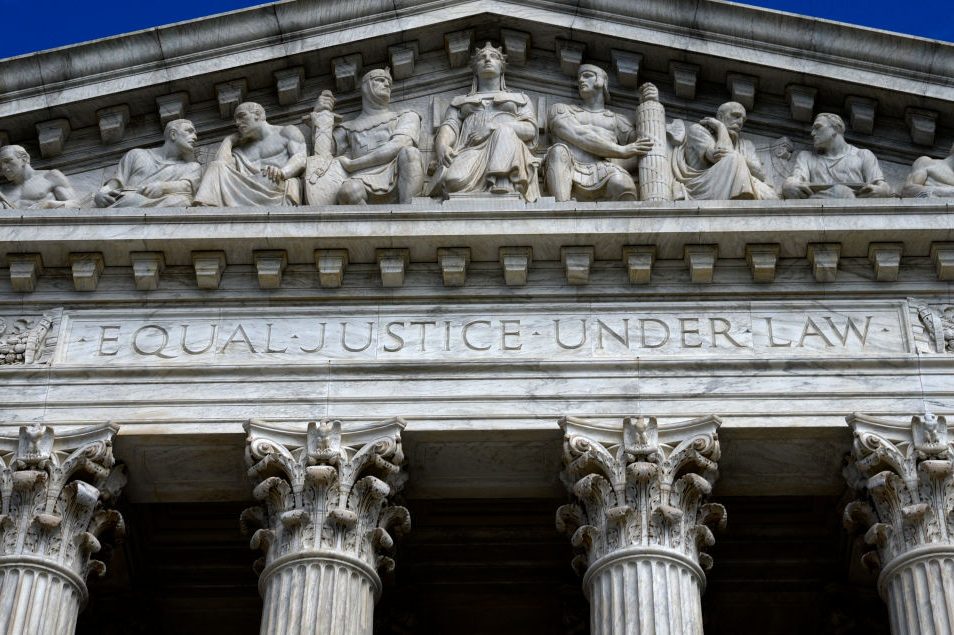On issue after issue, conservatives — and Republicans — have lost the “culture wars.” Not just lost but lost decisively and permanently. The victories are so secure on most issues that conservatives have abandoned the fight.
At times, the result has been a more tolerant public consensus, for example regarding gay rights and marriage.
There are two notable exceptions, however, where the cultural battles remain white-hot: abortion and transgender rights. Both issues motivated voters in 2024.
On abortion, voters have been mobilized by controversial Supreme Court decisions. The fight began in earnest in 1973, when Roe v. Wade effectively legalized abortion throughout the country and throughout the nine months of pregnancy. Opponents of Roe mobilized immediately, led by Catholics and evangelical Christians. They have stayed active ever since.
Their marches and petitions far outnumbered those of abortion proponents until 2022, when the Supreme Court overturned Roe and gave states the right to legislate abortion policy.
The result has been a wide range of state laws, some very restrictive, some very permissive, which have motivated activists on both sides. The “pro” side has been more visible publicly, but their opponents were more successful legislatively, managing to impose strict limits on abortion in several Republican states, sometimes at as early as six weeks from conception. Overturning these restrictions and replacing them with a national law restoring Roe was the Democrats’ strongest “positive” issue in 2024, at both the national and state levels.
Aside from that issue, the Harris campaign turned almost entirely negative. Her closing argument boiled down to two words: “Trump bad.”
If Democrats’ strongest cultural issue was abortion, the Republicans’ strongest was transgender rights. That issue actually has several dimensions: do adults have the right to change genders? Do children have similar rights? Who should make those decisions for children? Should transgender females, who were once boys or men, be allowed to use girls’ locker rooms and walk naked among school-age girls? Should transgender women, who were once men, be allowed to compete in women’s sports? Should taxpayers fund gender changes for prisoners and illegal aliens?
Democrats hold an advantage on only the first issue: adults’ right to change genders. Indeed, that right is approaching the status of a social consensus, so it is no longer politically salient.
Although this change in public sentiment was encouraged by public intellectuals and leading publications, their advocacy builds on a much deeper foundation: the Anglo-American tradition of respect for individual autonomy and personal choices. That tradition says it is up to each adult to make basic choices about his or her own life. Those choices should not be dictated by politicians, bureaucrats or religious leaders.
Abortion advocates make a similar claim for personal autonomy. “My body, my choice.” But, opponents say, the circumstances are fundamentally different since a pregnant woman’s choice involves another human life, that of the baby-to-be.
Activists have dominated this debate, but most voters favor compromise solutions on which week to end unrestricted abortions and exceptions if the mother’s life is in danger or the baby-to-be has serious congenital defects.
Those vexing issues do not apply when adults choose to change genders. But accepting that right for adults does not imply children should have the same right. After all, we don’t permit them to make consequential choices on many issues.
Among the most important categories where we deny children the same rights as adults are those that require mature judgment, such as voting; pose serious risks to self or others, such as driving; or entail major life changes that are hard (or impossible) to reverse.
All three “prohibited” categories apply to gender-changing surgery and puberty-blocking medication for children.
There is a social consensus, though not a universal one, that major irreversible decisions like electing gender surgery should not be made by children, even an emerging consensus that those changes should never be performed on children. Prudence suggests that they wait until they are eighteen or older and can make those decisions for themselves. Until then, they are simply too young, just as they are too young to vote, join the military, buy cigarettes, or drive an eighteen-wheel truck.
If transgender procedures are to be allowed on children at all, who should make that decision? “The experts,” say progressives, as they do on many issues. Most voters disagree. They either think the procedures should be outlawed for children or that such a drastic decision should be made by parents, with access to the best medical evidence. Teachers, psychiatrists, doctors and social workers may offer advice but not decide.
The most controversial transgender issues — all of them favoring conservatives — are locker rooms, sports competition and public funding for transgender surgeries.
Should transgender girls, born male, be free to use girls’ locker rooms, where they can shower and walk naked among teenagers? Yes, say progressives, whose legal organizations have sued and won to ensure those rights for those transgender girls. Their claim is that alternative arrangements would single out transgender girls and violate their civil rights. The problem, most voters say, is that the other girls have rights, too, and parents want to protect them.
The easiest way to judge public sentiment on that issue is to see who raised it during the election. It was featured in Republican ads while Democrats stayed silent.
Transgender participation in female sports is another divisive issue because biological men have significant physiological advantages. That’s why the Olympics stage separate competitions in all but one sport. Transgender women have the same advantages. Player safety is a secondary issue. Stronger transgender players can, and do, injure biological women in sports like volleyball, basketball and rugby.
Since schools, leagues and courts have generally allowed transgender athletes to compete in women’s sports, the female participants are taking matters into their own hands. Many are simply refusing to play against teams with transgender athletes. It’s civil disobedience on the athletic fields.
The silence of feminists on these issues has been striking. Why so silent? Probably because they conceive of themselves as progressives, believe transgender rights are a progressive cause — and refuse to take public positions that might undermine that broader ideology.
In fact, transgender rights are not a single, unified issue. You can strongly favor equal rights and personal autonomy without favoring competition in women’s sports, shared locker rooms or operations on children.
The idea of forcing taxpayers to fund gender-change operations for prisoners is especially unpopular. So is paying for anything for illegal aliens. So is paying for gender-change operations of illegal aliens in prison. That posed a problem for Kamala Harris this year since she was on tape favoring all those unpopular positions in her last presidential run, in 2020. This year, she tried to wriggle out of those positions without actually renouncing them.
On these and most other transgender issues, Republicans finally had the winning cultural hand. They drove it home with political ads, hoping to show Democrats were out of touch with ordinary Americans. That assertion goes well beyond one or two issues. Democrats will have to reconsider those positions — or double down on them — as they regroup for the next election cycle.
This article was originally published in The Spectator’s December 2024 World edition.























Leave a Reply